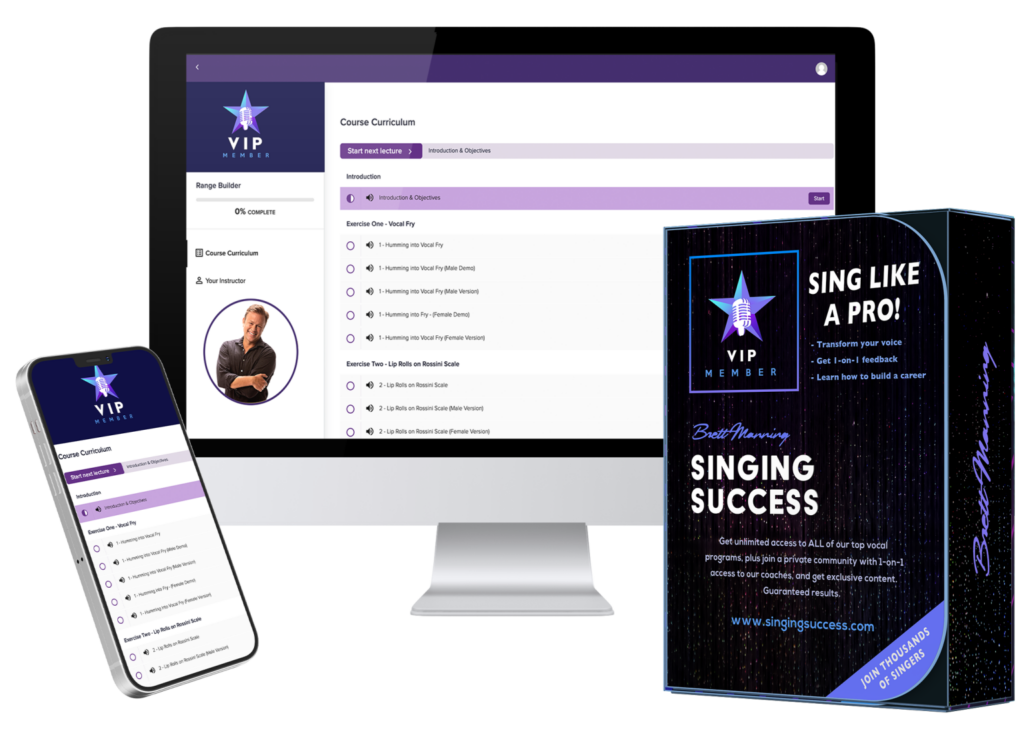Brett Manning (President & Founder of Singing Success) is one of the most sought-after vocal coaches in the world. He’s worked with Kane Brown, Leona Lewis, Miley Cyrus, Hayley Williams of Paramore, Taylor Swift, Keith Urban, American Idol phenom Clark Beckham, and many more. His clients have won 46 Grammys, 27 CMAs, and 23 AMAs, and have gathered over 500 Billion views on YouTube.

Increase your range, control your tone and find your style with the most comprehensive vocal training program in the world. Guaranteed results or your money back.
SS360: Learn foundational warm-ups and cool downs, strategic exercises that evolve with your voice as it grows, and exclusive skills to build endurance and strength.
Mastering Mix: Learn how to build a commercial and marketable sound.
Mastering Vibrato: Learn how to master vibrato and gain control over your timing. Tastefully apply vibrato in a variety of genres.
Vocal Hacks: 100+ vocal tips and tricks that will rework your voice. You will command your voice to move rapidly and freely and discover your true tone quickly.
Vocal Therapy: Learn how to restore tone quality, gain vocal flexibility, reduce inflammation, and restore your damaged vocal cords.

The best way to guarantee results
The best way to guarantee results
Discover Power, Presence, and Precision
Discover Power, Presence, and Precision
Achieve the purest form of tonal quality
Achieve the purest form of tonal quality
Quick tricks for fast results
Quick tricks for fast results
“I am the singer I am now because I was dedicated. If you’re a singer, a great way to dedicate yourself, to get results guaranteed, is Brett Manning’s Singing Success.”
– Clark Beckham
“The confidence that it gives you to be able to feel out your voice and to give your best performance possible every single time you go up on stage.”
– Anthem Lights
“It has to be something that’s proven to work for people and that’s why I always bring people to Singing Success.”
– Michael Barnes

"If you're wanting to - get better as a vocalist, build a network of support with people aspiring to do the same, and receive interactive opportunities with some of best coaches in the world - you're not going to find a better opportunity."
Duane Reno
VIP Member

"I’ve used the Singing Success program for about 10 years. The VIP community is the missing link from the program and personal growth. The contact with coaches interaction, with Brett and others is the big secret of this community."
Agosto Ago Marino
VIP Member

"It's crazy just how well this program works. I went from an okay singer that hoped for "good vocal days" to a confident singer that KNOWS how to have a good vocal day. This knowledge is priceless!"
Jason Allender

"I started this program about a month ago and I can already tell a HUGE difference in my voice! Thank you so much!!"
Kimberly Turpin